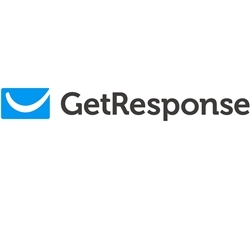By now, every marketer knows that marketing automation makes tasks, processes, and campaigns faster and more efficient. And nobody will argue that when marketing channels are integrated and automated, campaigns deliver stronger results.
That's one reason agencies and marketing teams are looking to attain stronger growth through marketing automation integration. Another driver, at least for US agencies, is that agency revenue is realizing modest growth these days, at 1.7%, according to the AdAge Agency Report 2019.
But agencies don't operate in a vacuum. After all, they wouldn't exist without clients. As marketing automation moves to the top of the priority list for agencies to better service their clients and boost the bottom line, the real question is whether the effort will pay off, what metrics should be used to gauge success, and when to expect an ROI.
A recent survey by GetResponse and Ascend2 took a closer look at the state of marketing automation integration at marketing agencies.
Here are the key takeaways, including how it will impact your 2020 planning, whether you're at an agency or part of an internal marketing team.
Five Takeaways and Recommended Marketing Actions
1. Marketing automation integration is being embraced by an overwhelming majority of marketers today. Fully 92% of agencies are investing more time, resources, and budget into marketing automation integration. The top 3 objectives behind this shift are to improve campaign effectiveness, improve quality lead generation, and build stronger alignment between Marketing and Sales.
Action: Marketers should evaluate their current strategy and progress in marketing automation integration. Whether the effort is run in-house or through an agency, it's clear that those organizations that aren't currently embracing marketing automation are at risk of being left behind and overthrown by the competition.
2. These are the three most important factors in choosing a marketing automation system to integrate: analytics and reporting, ease of use/learning curve, and total cost.
Action: These priorities make sense, especially when you consider factors such as the ubiquity of reporting tools and the rise of in-house agencies. Based on the data, one can infer that agencies are striving to master analytics and present more comprehensive, yet simple-to-follow campaign reports and are willing to make the necessary investments to do it.
3. These are the three most important metrics for measuring the benefits of a marketing automation integration effort: revenue generated, customers acquired, and conversion rates. Those metrics are followed by Marketing-qualified leads, Sales-accepted leads, cost per lead generated, and open and click rates.
Action: Marketers continue to be driven by numbers and demonstrable ROI for their efforts. Though branding and awareness marketing campaigns still play a critical, strategic role, when it comes to marketing automation, marketers are keenly focused on drilling down into the numbers behind every action. It won't be a surprise when agencies and marketers that can present and defend their numbers gain a clear advantage when negotiating and planning their 2020 budgets.
4. There is a gap between expectations and reality when it comes to the time it takes to realize the benefits of marketing automation integration. According to the survey, 49% of agency marketers say 6-12 months is a reasonable timeframe for realizing the benefits, whereas 42% say they should see results in six months or less.
Action: When you consider that most agency contracts are renewed on an annual basis, one could argue that agencies should be even more driven to accelerate their integration efforts. For marketers working with agencies, now is the time to get a realistic understanding of the automation process and delivery dates. Based on the information and timeline, build in small projects to gauge progress to date and consider incentives and the addition of resources to shorten deadlines without compromising quality.
5. To accelerate marketing automation integration, agencies are relying on a combination of in-house resources and outside consultants. The survey found that introducing and optimizing marketing automation into an overall strategy can be a time-consuming endeavor. Which is why most survey respondents, 64%, say that it's most effective to use a combination of outsourced specialists and in-house resources to tackle the effort.
Action: Based on the survey results, one can infer that there will be a growing demand for experts that can accelerate the integration of marketing automation solutions. Further, marketing agencies and in-house teams are also more likely to invest in solutions that are fully integrated so they can realize even faster cycles for revenue generation and customer acquisition and conversion.
* * *
It's clear that marketing automation integration will remain a top priority for marketers, especially as they plan for 2020. Marketers who aren't already on board can look to their agency partners to accelerate the path yet need to embrace marketing automation integration or risk obsolescence.




